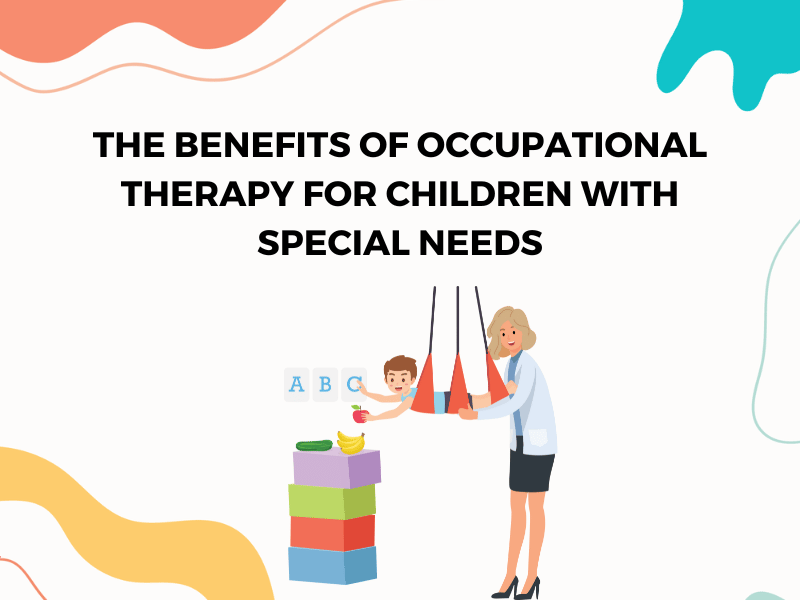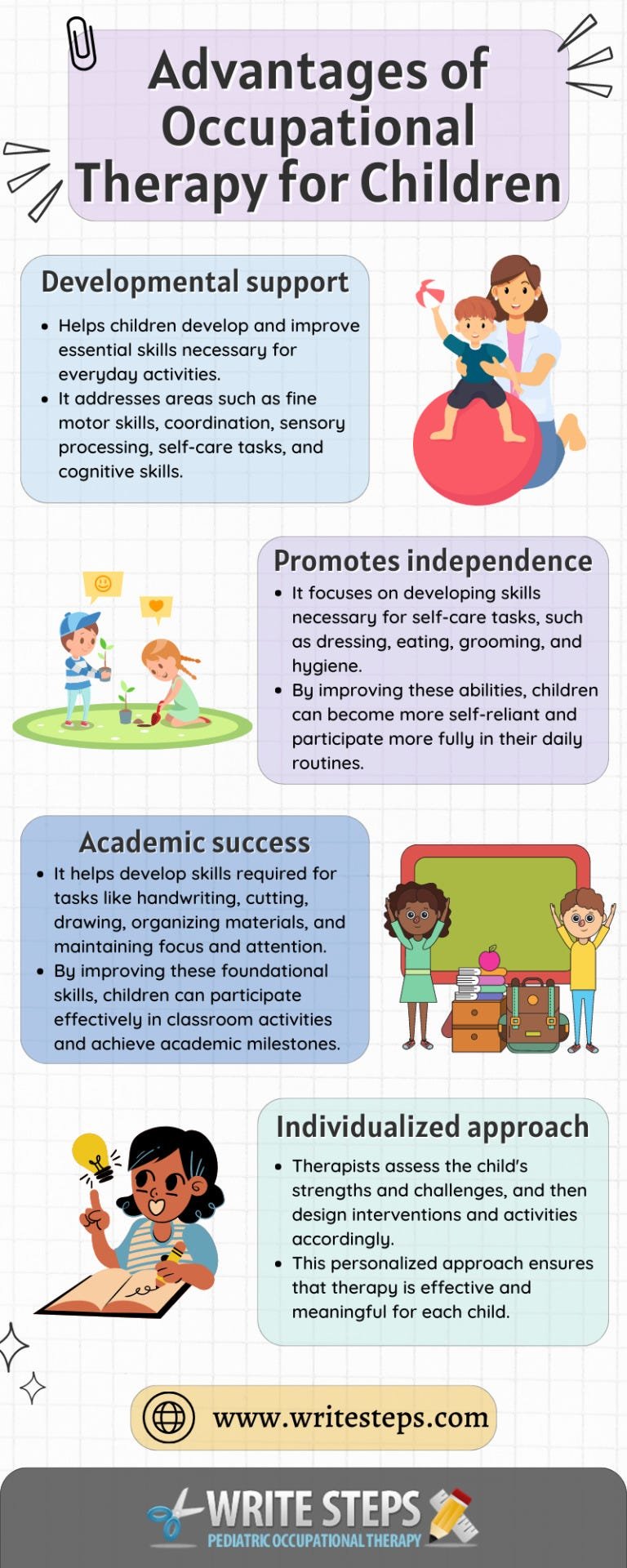So, you may be wondering why a child would need occupational therapy, right? Well, let me tell you, occupational therapy can be incredibly beneficial for children who may be experiencing challenges in their daily activities. Whether it’s difficulties with fine motor skills, sensory processing, or even socializing and self-regulation, occupational therapy can help children develop the necessary skills to navigate through their daily lives with confidence and independence. It’s all about providing them with the support they need to thrive and reach their full potential.
Enhances Fine Motor Skills
Fine motor skills are crucial for everyday tasks such as writing, cutting with scissors, and tying shoelaces. Occupational therapy can greatly enhance these skills by providing specific exercises and activities that target hand movements and coordination. Through various exercises, your child will be able to improve their hand-eye coordination, which is essential for tasks like catching a ball or threading a needle. Occupational therapy also focuses on developing writing and scissor skills, enabling your child to write legibly and cut with precision. Additionally, it enhances dexterity and manipulation skills, allowing your child to use their hands and fingers more effectively in tasks like buttoning clothes or opening containers.
Improves Gross Motor Skills
Gross motor skills involve larger muscle groups and are essential for activities such as running, jumping, and climbing. Occupational therapy is highly effective in improving these skills by emphasizing balance and coordination. Through therapeutic exercises, your child will be able to enhance their balance and stability, helping them navigate their environment more confidently. Occupational therapy also develops strength and endurance, allowing your child to engage in physical activities for longer periods without fatigue. Moreover, it improves motor planning and control, enabling your child to execute movements more efficiently and precisely.
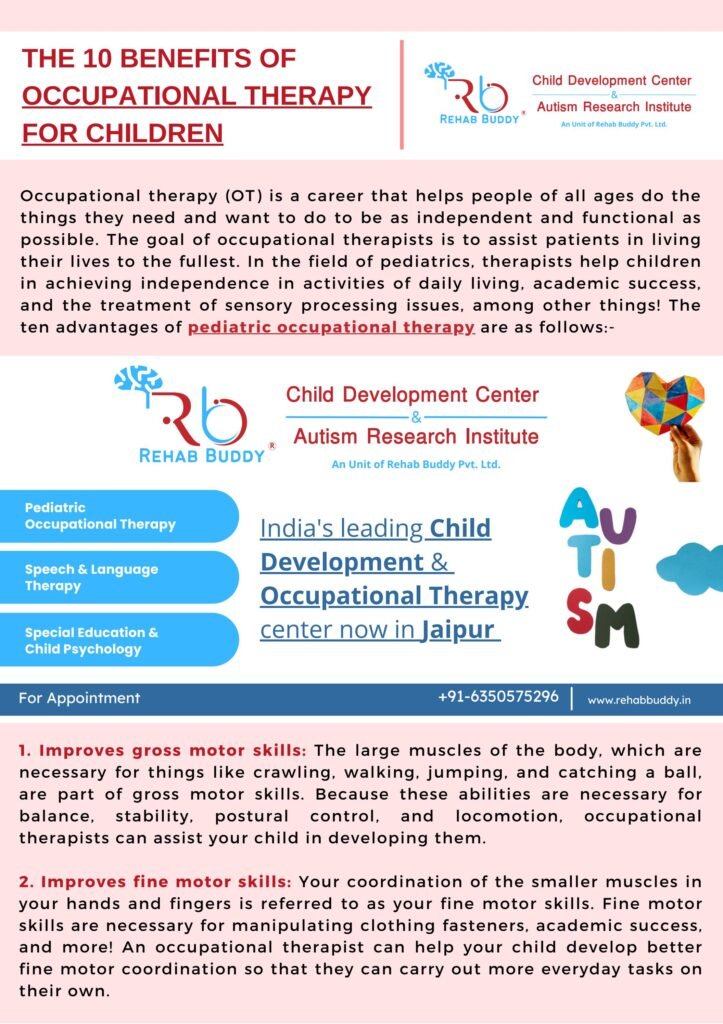
Boosts Sensory Integration
Sensory integration refers to the brain’s ability to take in, process, and respond to sensory information from the environment. Occupational therapy plays a crucial role in improving sensory processing and integration skills. By engaging in sensory integration activities, your child will learn to better interpret and respond to sensory stimuli, leading to a reduction in sensory sensitivities. Additionally, occupational therapy enhances body awareness, helping your child better understand their own physicality and how they interact with their surroundings.
Facilitates Cognitive Development
Occupational therapy has a significant impact on cognitive development. By enhancing attention and concentration, occupational therapy helps your child stay focused and engaged in various activities. It also improves problem-solving and decision-making skills, enabling your child to effectively navigate challenges and make informed choices. Furthermore, occupational therapy develops memory and learning skills, providing your child with the tools to absorb and retain information more effectively.
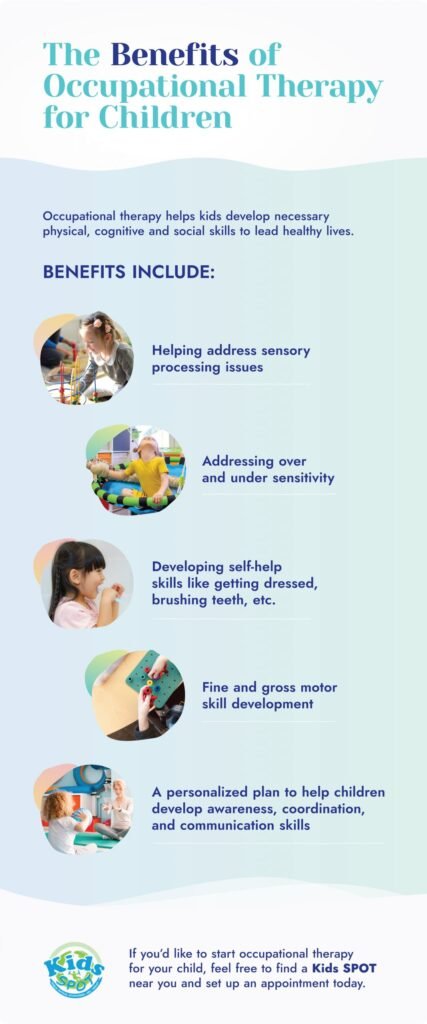
Promotes Independence and Self-help Skills
Developing daily living skills is a fundamental aspect of a child’s overall development. Occupational therapy assists in this process by focusing on activities that enhance self-care abilities. Through occupational therapy, your child will acquire the skills necessary to independently dress themselves, manage personal hygiene, and perform other essential self-care tasks. This fosters a sense of independence and self-confidence as they become more capable of taking care of themselves.
Assists with Social Interaction
Social interaction is a vital aspect of a child’s development, and occupational therapy can greatly assist in enhancing communication skills. Through various therapeutic activities, occupational therapy helps children develop and improve their ability to express themselves verbally and non-verbally. This, in turn, enhances social interaction and play skills, allowing your child to engage more effectively with their peers. Furthermore, occupational therapy promotes emotional regulation, enabling children to better manage and express their emotions in social settings.
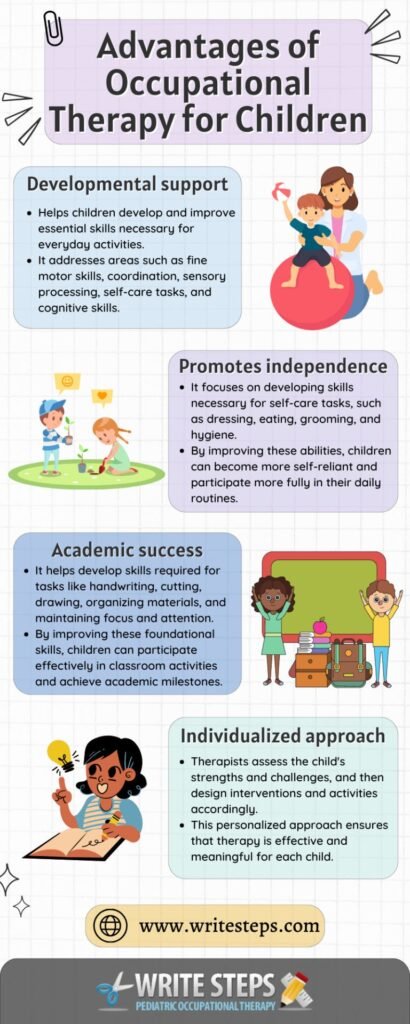
Helps with Behavioral Challenges
Occupational therapy provides valuable tools and strategies to help children cope with behavioral challenges. By teaching coping strategies, occupational therapists empower children to effectively manage and regulate their emotions and behaviors. Occupational therapy also focuses on reducing impulsivity and hyperactivity, allowing children to have better control over their actions and responses. Through consistent occupational therapy sessions, your child will develop improved self-regulation skills, leading to more positive behavioral outcomes.
Supports Academic Performance
Occupational therapy positively impacts academic performance by addressing various foundational skills. It enhances handwriting and typing skills, improving legibility and speed in written tasks. Additionally, occupational therapy improves reading and comprehension abilities, helping children better understand and engage with written material. Furthermore, occupational therapy develops math and cognitive skills, enabling children to grasp mathematical concepts and apply critical thinking in problem-solving.
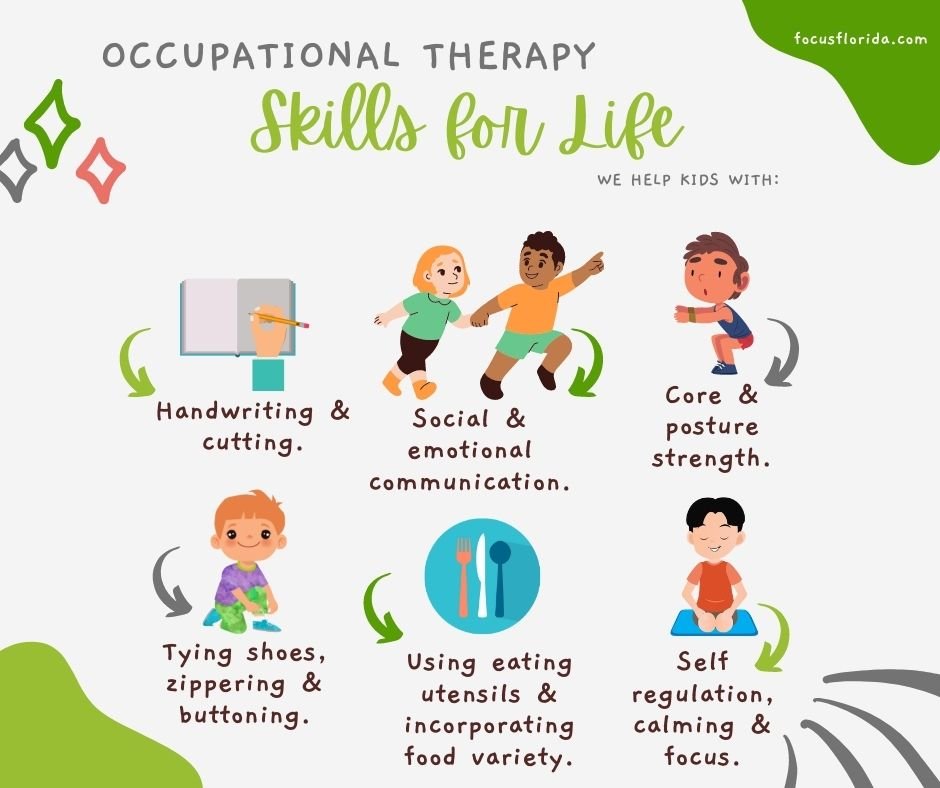
Addresses Sensory Processing Disorders
Children with sensory processing disorder (SPD) can greatly benefit from occupational therapy. Occupational therapists specialize in providing specific techniques and interventions that help children with sensory challenges. Occupational therapy helps children with SPD by addressing their sensory processing issues, reducing sensory sensitivities, and promoting sensory integration. Through a customized treatment plan, occupational therapists work with children to manage sensory overload and facilitate a more balanced sensory experience.
Assists in Managing Developmental Delays
Occupational therapy can play a vital role in assisting children with developmental delays in catching up on their milestones. By targeting specific areas of delay, occupational therapy helps children improve their motor, cognitive, and communication skills. Occupational therapists work closely with children to address speech and language delays, providing therapeutic interventions that enhance communication abilities. Additionally, occupational therapy promotes overall growth and progress by focusing on various developmental aspects, ensuring children have the necessary skills to thrive.
In conclusion, occupational therapy offers a wide range of benefits for children. Whether it’s improving fine motor skills, enhancing sensory integration, promoting cognitive development, or assisting with social interaction, occupational therapy provides targeted interventions to help children overcome challenges and reach their full potential. By addressing specific areas of difficulty and providing personalized treatment plans, occupational therapy empowers children to develop essential skills, increase independence, and achieve success in various aspects of their lives.
